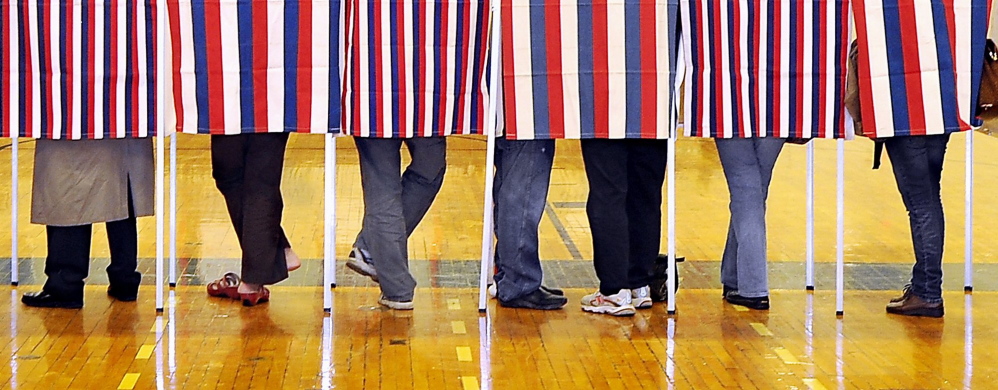Mainers look with envy across the border to New Hampshire every four years while our next-door neighbors get to make history.
When the Maine caucuses roll around next month, there may still be a race for the presidential nomination in either the Democratic or Republican parties — or both — but the results here will never have the kind of impact of what will take place this week on the other side of the Piscatiqua River. Judging from the past, it’s safe to assume that on Tuesday some candidacies will catch a spark, some will be snuffed out, and the terms over which the rest of the campaign will be fought will be made much more clear.
Putting aside our jealousy for a moment, we have to admit that New Hampshire has an important role and it plays it quite well. Before the word “focus group” was ever invented, New Hampshire has acted as one, a place where every voter has the opportunity to listen to what all the candidates have to say, ask them questions and judge them on more than just the quality of their TV ads.
When the surviving campaigns head south on Wednesday, the states are too big and the contests come too fast for this kind of in-depth retail campaigning.
MUCH AT STAKE
So what will the New Hampshire voters decide on Tuesday?
An upset loss for either Bernie Sanders on the Democratic side or Republican Donald Trump, the two leaders in the polls, could deal a potentially fatal blow to these two outsiders.
A strong finish for Florida Sen. Marco Rubio in the Republican primary, even if he doesn’t win, could cement his status as the establishment alternative to the insurgent campaigns of Trump or Texas Sen. Ted Cruz.
Primaries tell campaigns which issues motivate voters and help shape their approach. But just as important as the policy positions they advocate, the kinds of candidates who advance will also send an important message. New Hampshire voters are being asked to give their verdict on how deep America’s problems really are, and what kind of change would be required to fix them.
On the Democratic side the choice is stark, and it’s less a difference in policy ideals than world view.
Hillary Clinton, the national front runner, is a defender of the liberal programs of the New Deal, Great Society and the Obama administration. Her stated goal is to hold onto the accomplishments of the past and fight to improve the programs as much as possible in a divided government.
Bernie Sanders is equally in favor of those programs, but argues that the nation’s problems around wealth inequality are so fundamental that they would require radical change to address them. Such change would not be possible in divided government, so he is calling on the middle class to rise up in a political revolution.
WHAT KIND OF CHANGE
On the Republican side the differences are less clear because any Republican president who followed eight years of a Democratic administration would usher in substantial change in Washington.
But there is still a gulf between establishment candidates like Rubio, Ohio Gov. John Kasich, New Jersey Gov. Chris Christie, former Florida Gov. Jeb Bush and the insurgent campaigns of Trump and Cruz, who criticize Republican leaders as much as they attack Democrats.
If Republican voters believe that America just needs a change of parties, they will reward the establishment. If they believe that the country needs to be changed from the roots, they will support Trump or Cruz.
New Hampshire voters in both primaries can send a powerful message about whether America needs a tune-up or an overhaul in 2016, and their choice will have repercussions throughout the campaign season.
It’s a much bigger choice which person should represent the party in November, and the whole world, including Maine, will be watching closely.
Copy the Story LinkSend questions/comments to the editors.



Success. Please wait for the page to reload. If the page does not reload within 5 seconds, please refresh the page.
Enter your email and password to access comments.
Hi, to comment on stories you must . This profile is in addition to your subscription and website login.
Already have a commenting profile? .
Invalid username/password.
Please check your email to confirm and complete your registration.
Only subscribers are eligible to post comments. Please subscribe or login first for digital access. Here’s why.
Use the form below to reset your password. When you've submitted your account email, we will send an email with a reset code.